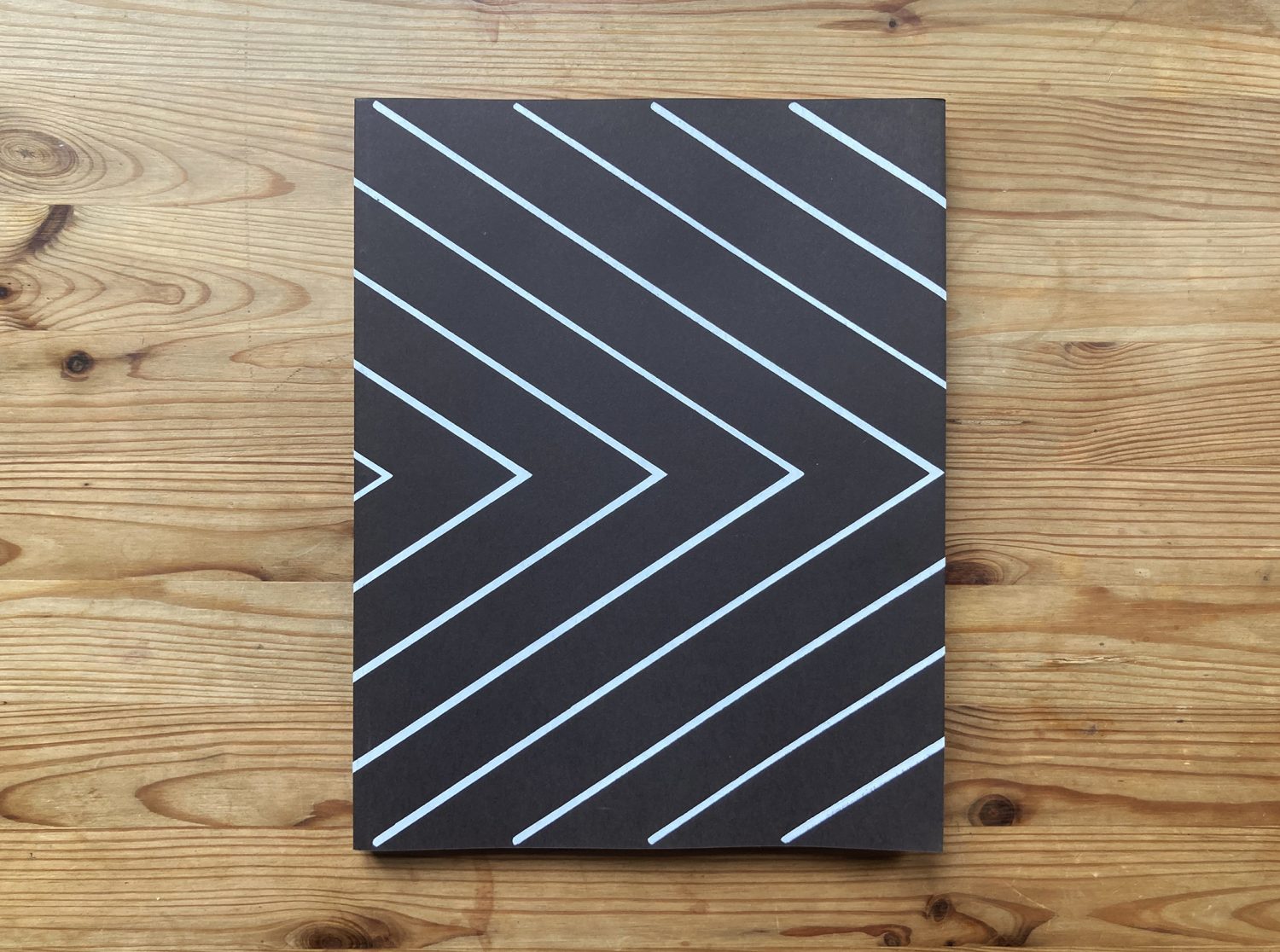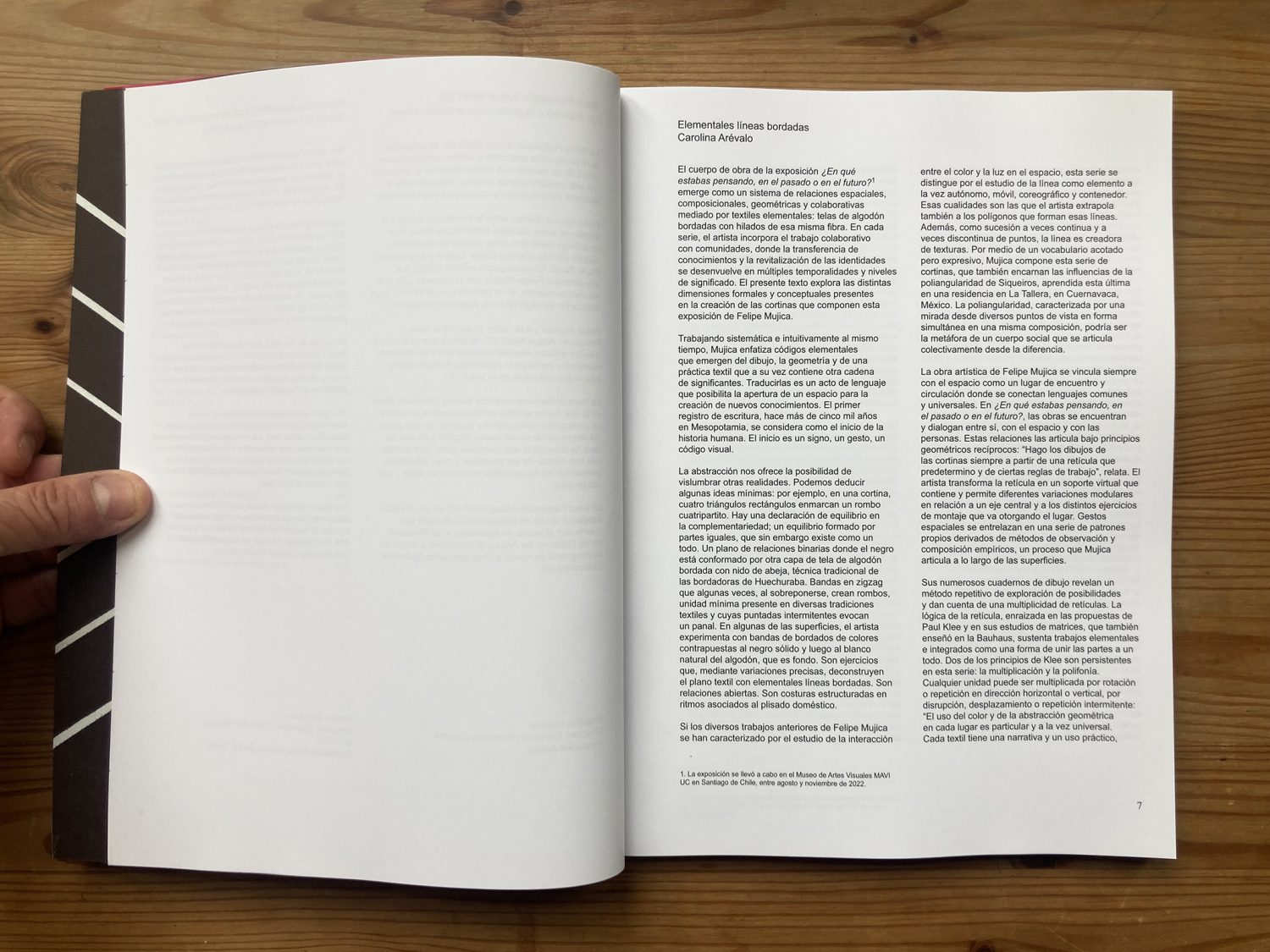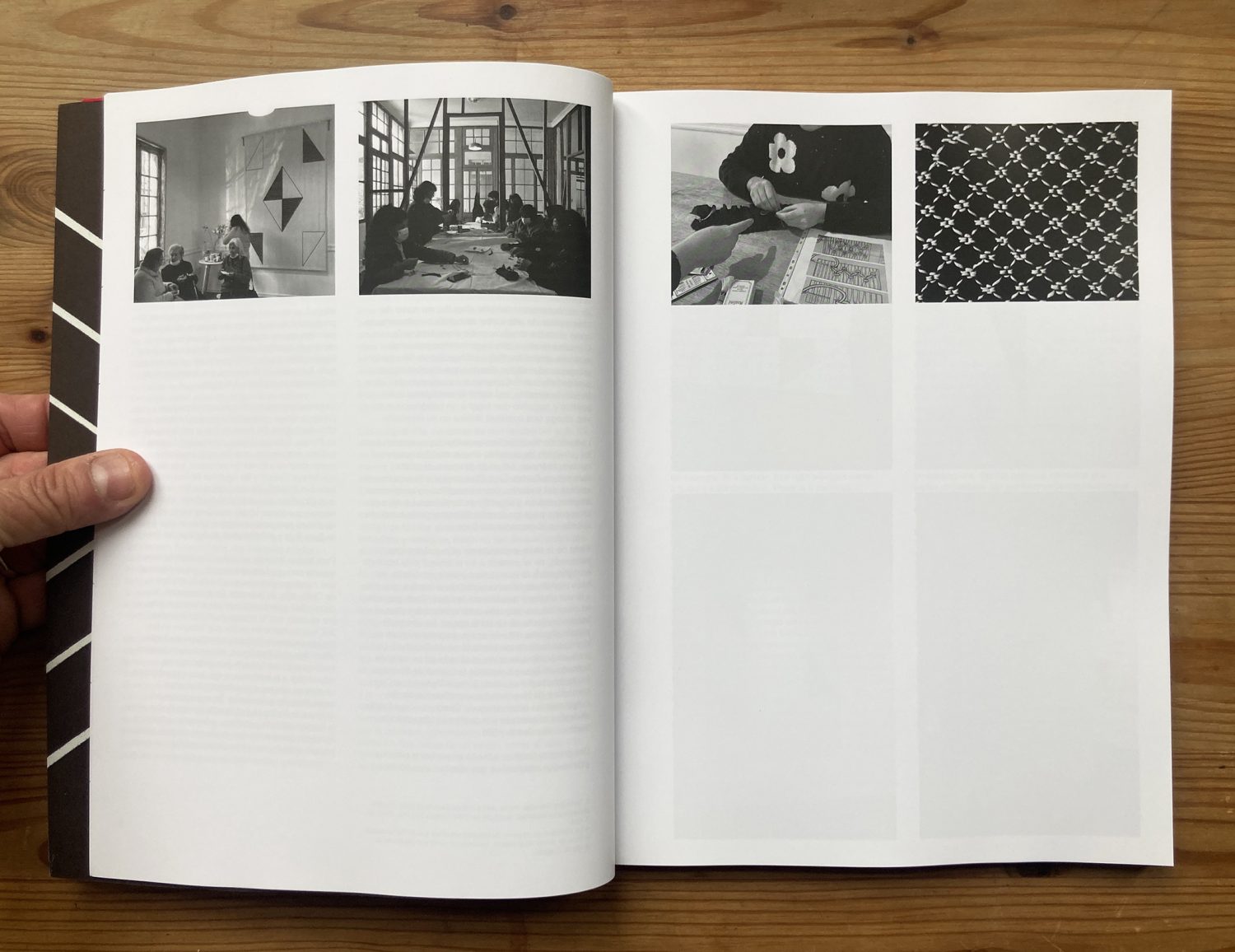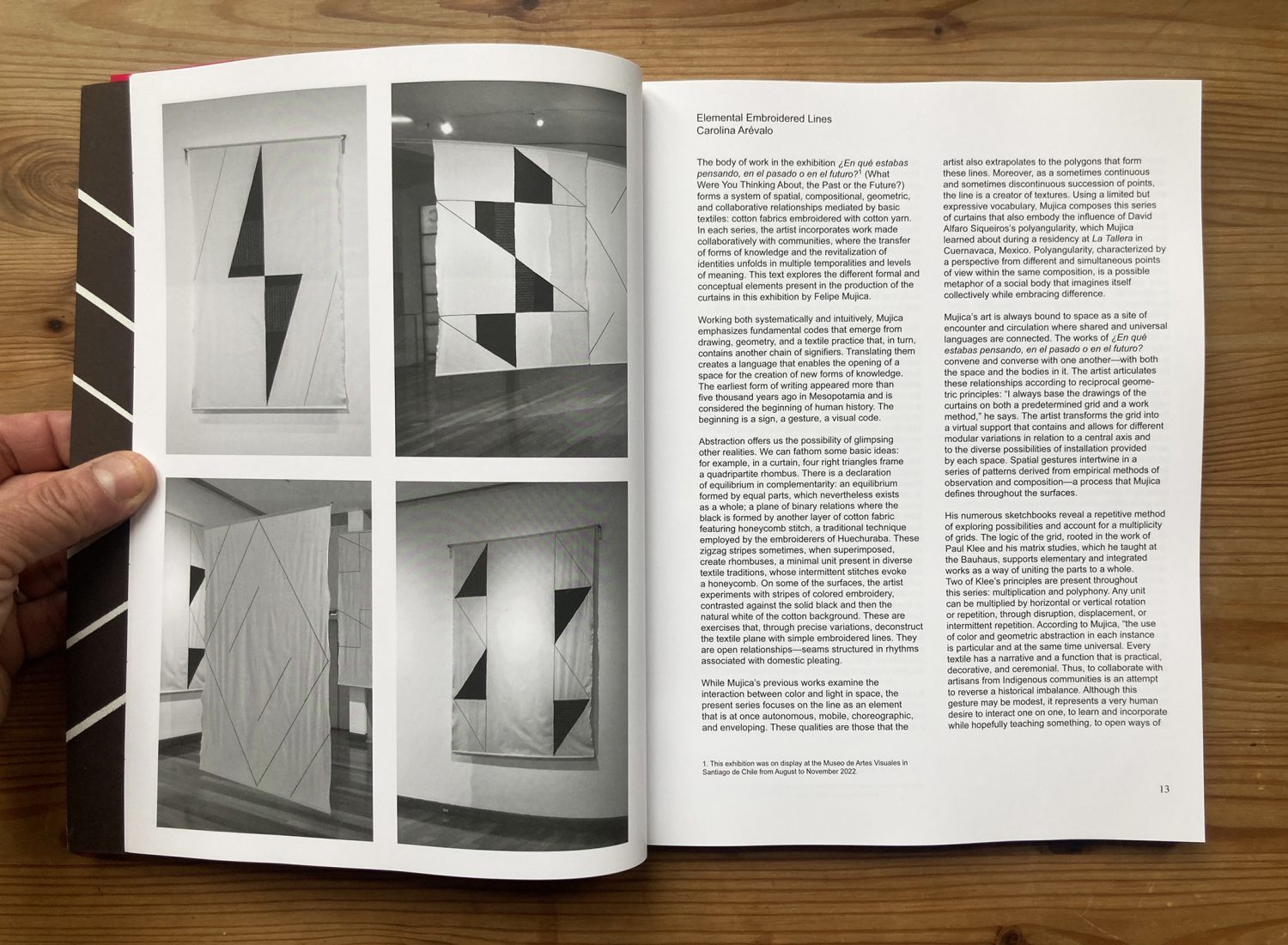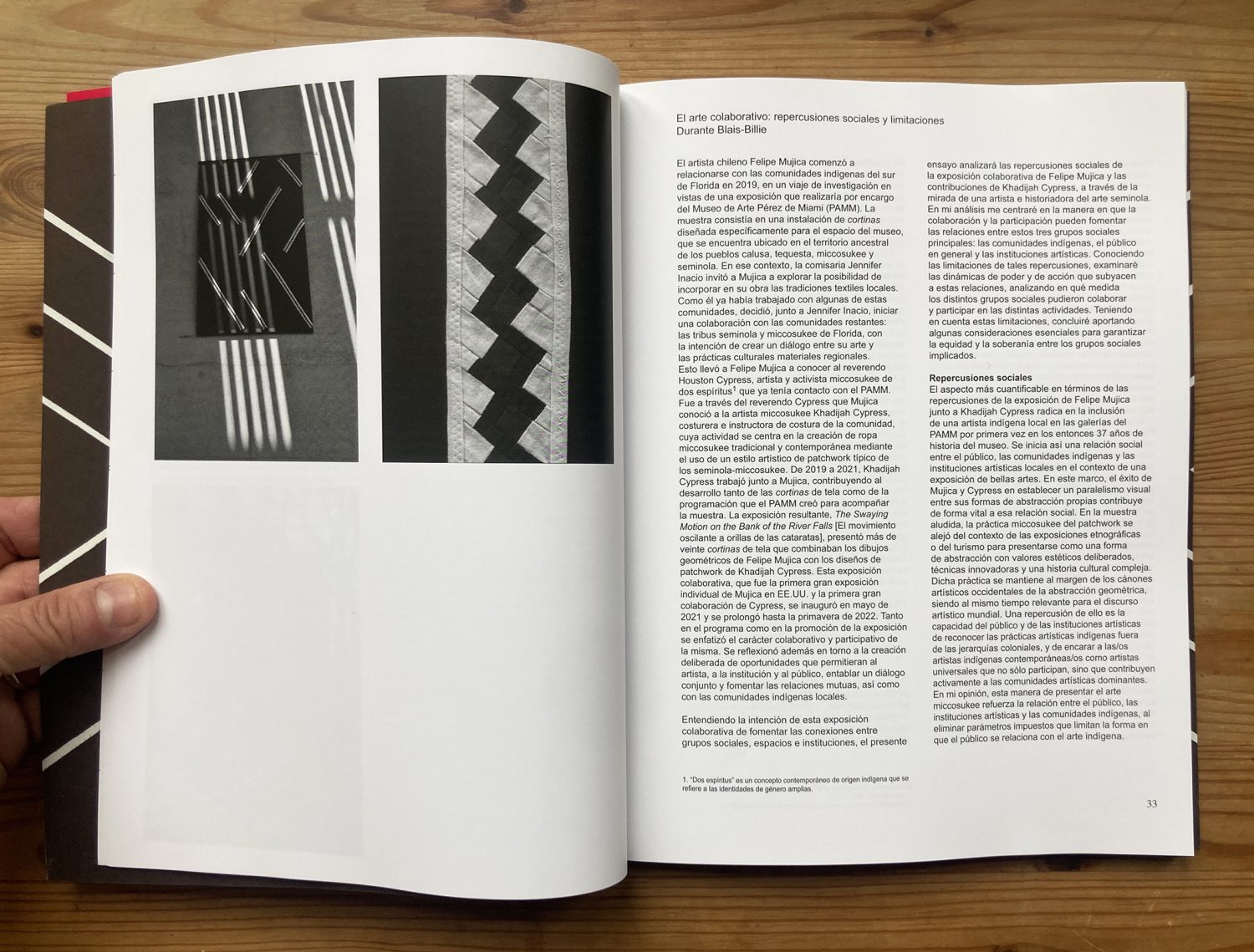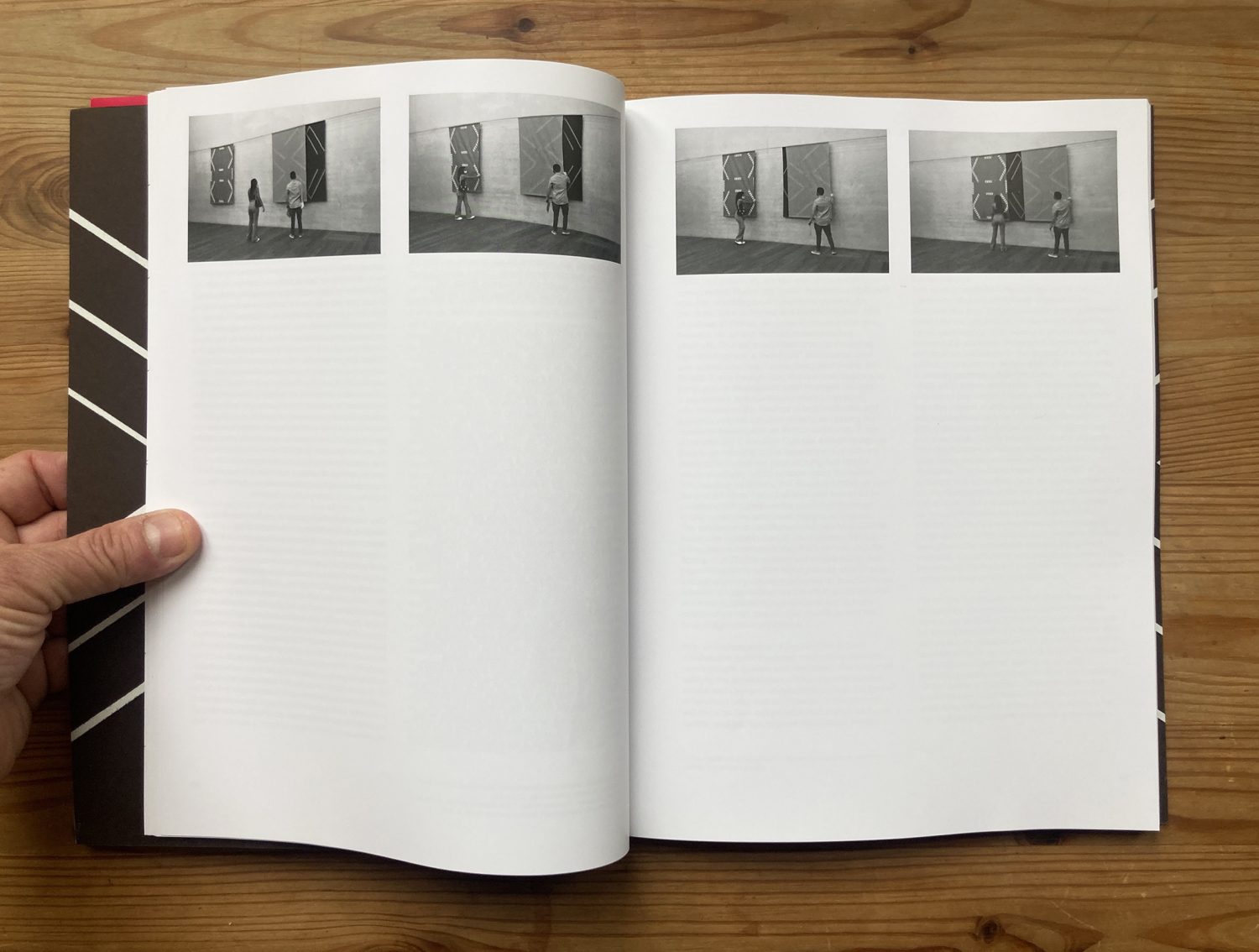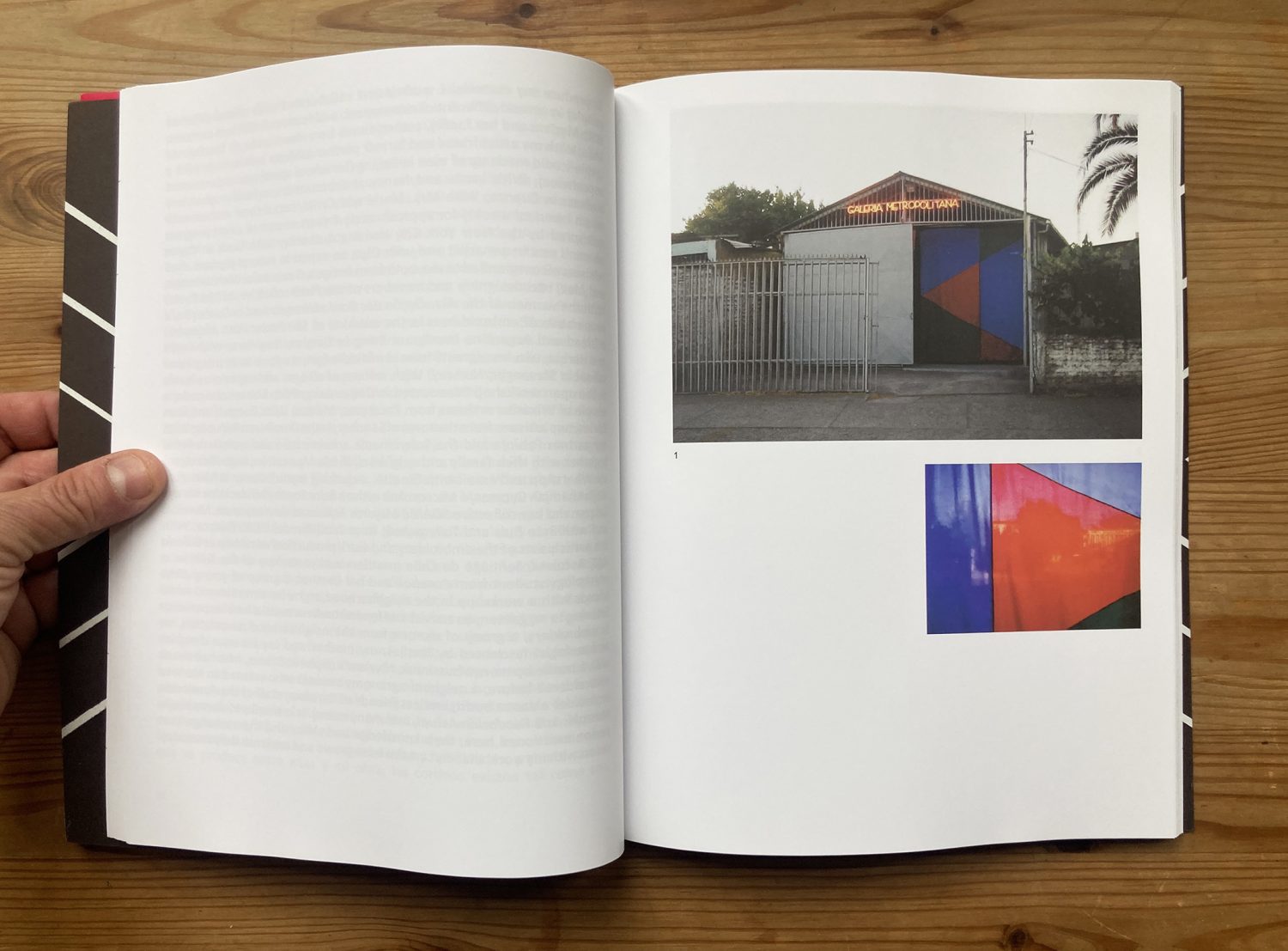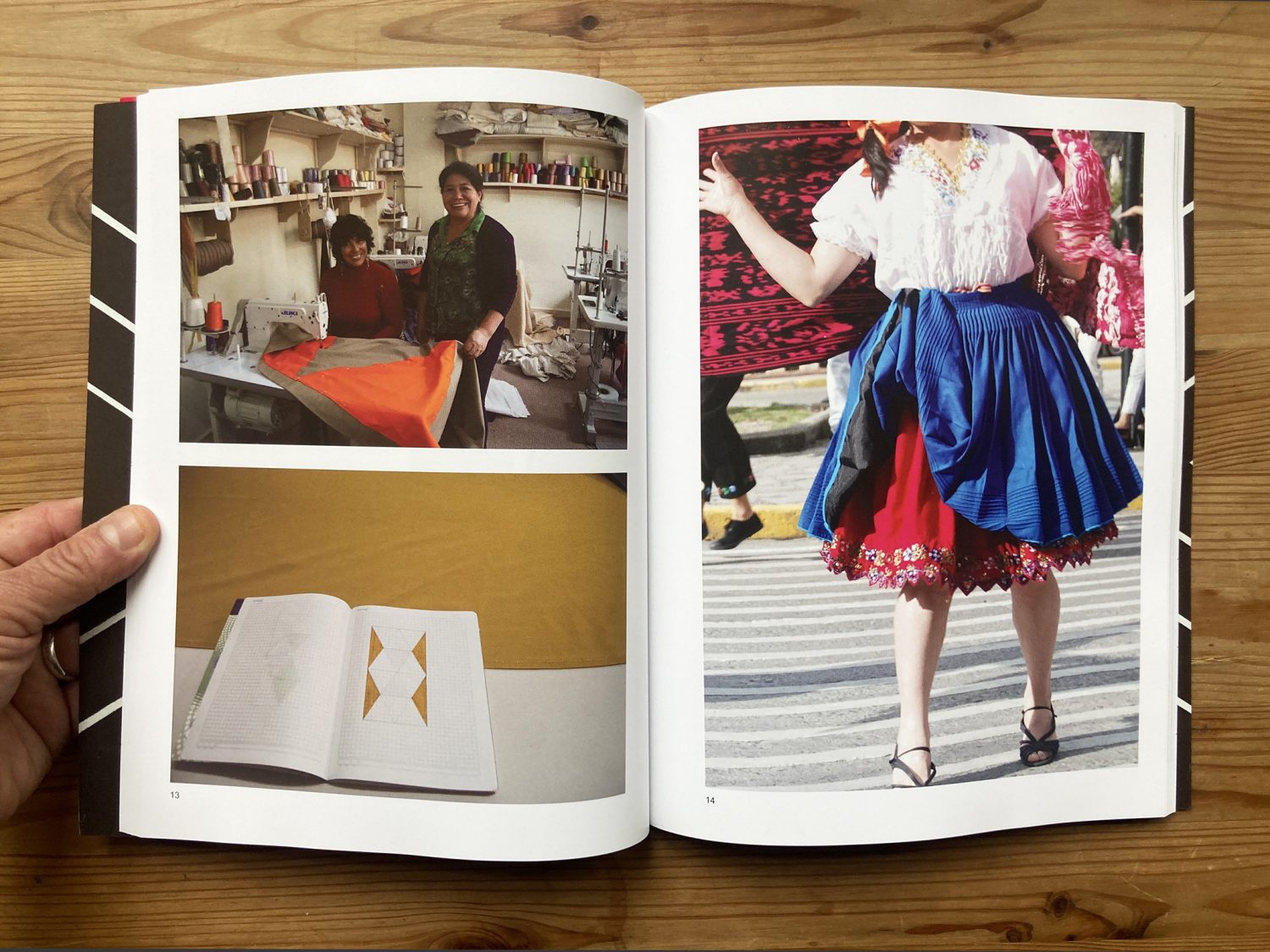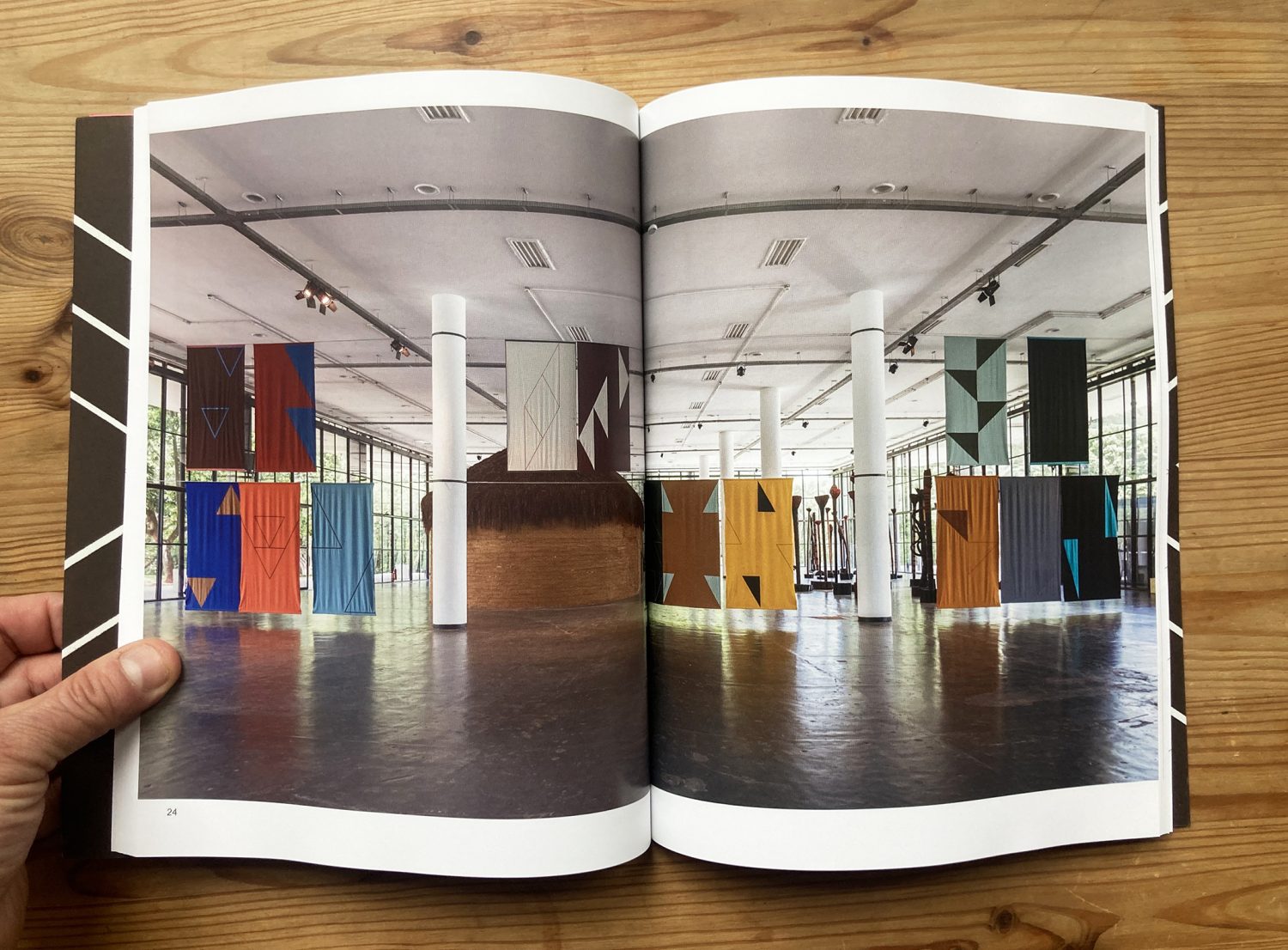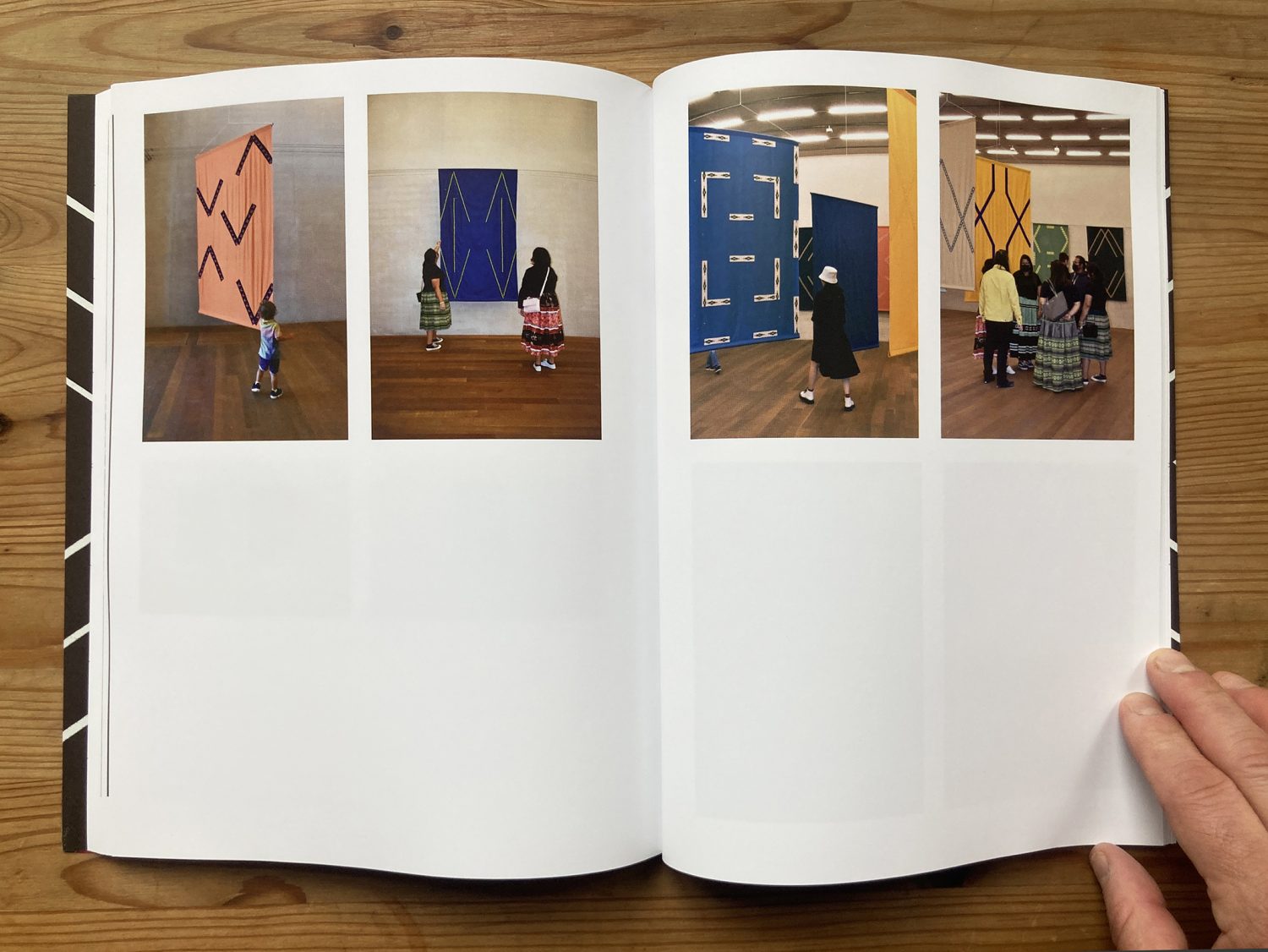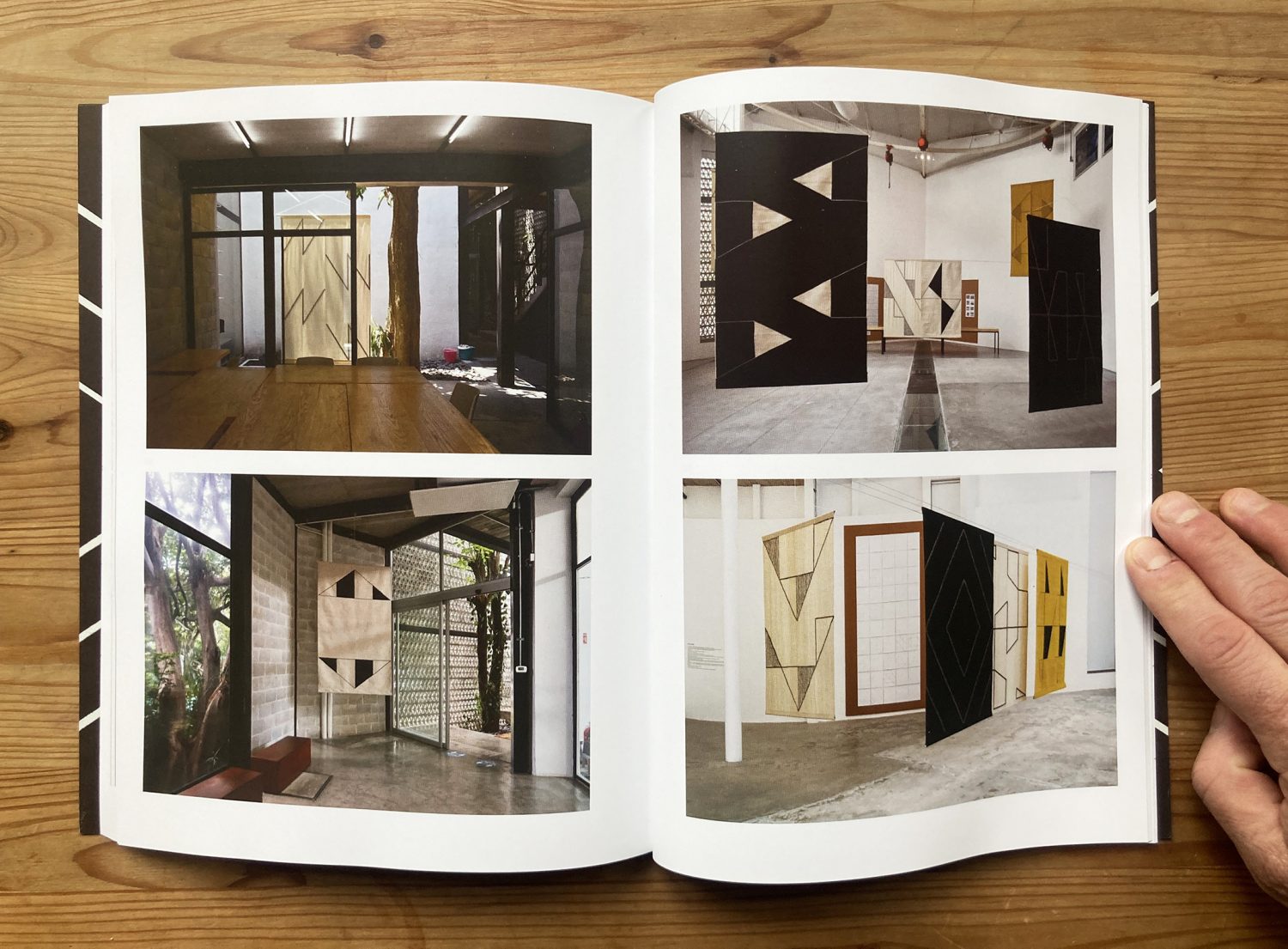2022 ¿EN QUÉ ESTABAS PENSANDO, EN EL PASADO O EN EL FUTURO?
Felipe Mujica – ¿En qué estabas pensando, en el pasado o en el futuro?
400 copies – 156 pages
Design and concept by Felipe Mujica
Texts by Carolina Arévalo, Sofía Olascoaga, Durante Blais-Billie, José Luis Falconi, and Felipe Mujica
Offset print and binding by Alerce Talleres Gráficos
Published by Beca Fundación Actual MAVI UC 2020, Santiago de Chile, with the support of Frank Williams and Keris Salmon, New York
November 2022
=======================================================
=======================================================
This publication was part of the Beca Fundación Actual MAVI UC 2020, which is a production prize aimed at mid-career Chilean artists that seeks to promote the development of Chilean contemporary art, encouraging artists to achieve consolidation and recognition for their work.
Stemming from an alliance between Fundación Actual and the Museo de Artes Visuales MAVI UC, the grant, which is awarded every 2 years, recognized the artist César Gabler and his project Papel Bond in the first run (2018). In its second run (2020), it was awarded to Felipe Mujica for the project ¿En qué estabas pensando, en el pasado o en el futuro? (What Were You Thinking About, the Past or the Future?), whose production story is documented in this publication. Being true to the spirit and raison d’être of the Beca Fundación Actual MAVI UC, it supports visual artists both in the form of a financial contribution and by offering them the possibility of holding a solo exhibition at the MAVI UC.
This book is published on the occasion of the exhibition: ¿En qué estabas pensando, en el pasado o en el futuro? MAVI UC, Santiago de Chile, 11.08.2022 – 06.11.2022
Published with the support of: Beca Fundación Actual MAVI UC 2020, Santiago de Chile, and Frank Williams & Keris Salmon, New York, USA
=======================================================
Contributors bios:
Carolina Arévalo Karl (Santiago de Chile, 1985) is an independent curator and faculty member at Universidad Academia de Humanismo Cristiano in Santiago, Chile. Her curatorial projects include Sheila Hicks: Reencounter at the Pre-Columbian Art Museum in Santiago (2019); and Soft Territories at the Knockdown Center in New York (2019), among others. Her research has been published in edited volumes and exhibitions catalogs such as Hilos Libres: Sheila Hicks (Puebla, México: Museo Amparo, 2018), Jaume Xifra (Gerona, Spain: Universitat de Girona, 2018), and Anni Albers: Influjos Precolombinos y Legado (City, Colombia: Goethe Institute, 2019). Carolina holds an MA in History of Design and Curatorial Studies from Cooper Hewitt, Smithsonian Design Museum, and The New School, as well as a BA in Design from Pontificia Universidad Católica de Chile, where she graduated Suma Cum Laude. She also holds a certificate in Gender and Sexuality Studies from The New School in New York.
Sofía Olascoaga (Mexico City, 1980) is an artist, curator, and researcher. Her practice explores the intersections between art and education by activating spaces for critical thinking and collective action. Olascoaga was co-curator of the 32nd São Paulo Art Biennial (2016), Incerteza Viva (Live Uncertainty), academic curator at the Museo Universitario Arte Contemporáneo (2014-2015) of UNAM, in Mexico City, research curatorial fellow at Independent Curators International (2011), and Helena Rubinstein curatorial fellow at the Whitney Museum of American Art’s Independent Study Program (2010). She received her bachelor’s degree with honors from La Esmeralda National School of Painting, Sculpture and Printmaking. In 2012, she was the workshop clinics director at the International Symposium on Contemporary Art Theory and, from 2007 to 2010, head of education and public programs at Museo de Arte Carrillo Gil, both in Mexico City. Her long-term research project, Entre utopía y desencanto, focuses on the collective memory and genealogies stemming from intentional community models developed in Mexico in past decades. It addresses the ideas posed by Iván Illich and his influential role in the practice of many Mexican and international thinkers. She is currently a member of Sistema Nacional de Creadores de Arte (2019-2022) in Mexico, in Experimental Practices to develop her project titled La Nutridora: Una cocina para aprender.
Durante Blais-Billie (Hollywood, Florida, 1997) is a Two-Spirit member of the Seminole Tribe of Florida, born and raised in their people’s Eastern homelands on the Hollywood Reservation. Durante holds an MA in Art History and Management from the University of St Andrews, Scotland, and is a practicing contemporary artist specializing in Seminole art. Durante utilizes their lived experience and the knowledge gifted to them by their community to negotiate what ‘Art History’ truly looks like for their people. They are dedicated to exploring the intersections of Seminole identity, Indigenous knowledge, and Seminole visual culture. To achieve this, Durante’s work utilizes Native-led education and activism with the central mission of Decolonial healing. Durante has served their tribe as the Assistant Director of the Ah-Tah-Thi-Ki Museum and as a Social Responsibility Specialist for Hard Rock International, focusing on addressing and preventing Human Traficking. Through their most recent projects, they advocate for Tribal Sovereignty and highlight the intersections of environmental exploitation and gender-based violence as results of colonialism.
José Luis Falconi (Lima, 1973) is an Assistant Professor of Art and Human Rights at the University of Connecticut, where he is also co-Chair of the Arts & Human Rights research program at its Human Rights Institute. He is also the President of Cultural Agents Inc, an NGO which aims to showcase, study, and promote the recognition of the arts as resources for positive change, and its efficacy in social interventions. He received his Ph.D. from Harvard University in 2010. From 2001 to 2011 he was the Art Forum Curator at the David Rockefeller Center for Latin American Studies at Harvard University, curating more than thirty shows of cutting-edge Latino and Latin American artists in an academic setting. Until July 2017, he was an Associate of the Department of Art History and Architecture of Harvard University, where he completed his post-doctorate studies in 2011, under the supervision of Prof. Thomas Cummins. His latest academic publications include Portraits of an Invisible Country: The Photographs of Jorge Mario Múnera (2010), A Singular Plurality: The Works of Darío Escobar (2013), The Great Swindle: A Project by Santiago Montoya (2014), Ad Usum / To be used: The Works of Pedro Reyes (2017), and Pre-Texts International (2022).
….
